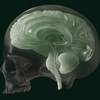grouping

Beyond reductionism: Contingent grounding and the Mind-Body Problem
I det här projektet undergrävs de två traditionella sätt på vilka man har betraktat kropp-medvetandeproblemet och föreslår en ny teori.
Are animals needed for food supply, efficient resource use, and sustainable cropping systems? An argumentation analysis regarding livestock farming
Food Ethics, vol. 9 Abstract It has been argued that livestock farming is necessary to feed a growing population, that it enables efficient use of land and biomass that would otherwise be lost from the
Dropping out in Scandinavia. Social Exclusion and Labour Market Attachment among Upper Secondary School Dropouts in Denmark, Finland, Norway and Sweden
Most researchers in the field are in agreement that a diploma from apprenticeship-based vocational training gives a smoother school-to-work transition than a diploma from school-based vocational train
Grounding the legitimacy of international institutions in personal and collective autonomy? Human rights, state consent and alternative standards
Place: The Institute for Futures Studies, Holländargatan 13, StockholmInternational institutions make claims to authority that can clash with both personal and collective autonomy. At the same time, th
Belief Revision for Growing Awareness
Mind 130(520), 2021 Abstract The Bayesian maxim for rational learning could be described asconservative changefrom one probabilistic belief orcredencefunction to another in response to new information. ). But can this conservative-change maxim be extended to revising one’s credences in response to entertaining propositions or concepts of which one was previously unaware? The economists,) make a proposal in this spirit. Philosophers have adopted effectively the same rule: revision in response to growing awareness should not affect the relative probabilities of propositions in one’s ‘old’ epistemic state. The rule is compelling, but only under the assumptions that its advocates introduce. It is not a general requirement of rationality, or so we argue. We provide informal counterexamples. And we show that, when awareness grows, the boundary between one’s ‘old’ and ‘new’ epistemic commitments is blurred. Accordingly, there is no general notion of conservative change in this setting.
Putting the person in to the particle
Report on seminar 'Modelling Social Mechanisms for Knowledge Generation & Exploration' by Nanda Wijermans (Stockholm Resilience Centre) Over the last decade physicists have developed “social force”
What can be understood, what can be compared, and what counts as context? Studying lawmaking in world history
In: Arne Jarrick, Janken Myrdal, Maria Wallenberg-Bondesson (eds.). Methods in world history. A critical approach. Lund: Nordic Academic Press. Methods in World Historyis the first international volume
Weighing Absolute and Relative Proportionality in Punishment
in Tonry, M. (ed.) Of One-eyed and Toothless Miscreants: Making the Punishment Fit the Crime? Oxford: Oxford University Press. Abstract Conflicts between relative and absolute proportionality are an imp
The complexity of crime network data: A case study of its consequences for crime control and the study of networks.
PLoS ONE 10(3): e0119309., doi:10.1371/journal.pone.0119309 Abstract The field of social network analysis has received increasing attention during the past decades and has been used to tackle a variety o

Anandi Hattiangadi
I am a professor of philosophy at Stockholm University and a researcher here at the institute. I received my PhD from the Department of History and Philosophy of Science, at the University of Cambridg








